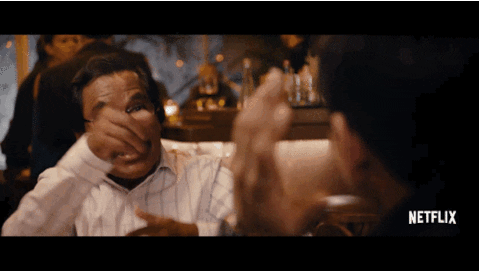On a spring night during my last year of college, I had accompanied my housemate to her friend’s party at these grimy apartments. She opened the apartment door and immediately was hugged by her friend. I quietly shut the door behind us and was suddenly in front of a shirtless guy who towered over me. “What ARE you?!” I thought, what the hell– no ‘hi, nice to meet you?’ But he was completely wasted and I just needed to LEAVE. “uh, Mexican?” I answered quietly. “I guessed it!” he said, to no one in particular. I pushed my way past him and then noticed that the apartment partygoers were mostly white. We asked what was up with these girls who had bedazzles between their eyebrows. One grabbed her friend and replied, “we’re Indian! It’s an Indian party!” And as if to answer my continually shocked facial expression, she reassured us- “Don’t worry, our friend here is Indian and said it was okay!”
We left within 10 minutes.
To be frank, I have always braced myself for that one question every time I’m put into a situation of meeting new people- “so.. what are you?” Lately, the question has evolved into a more polite and thoughtful preamble, “Excuse me asking..” “You probably get this a lot, but can I ask what ethnicity you are?” “What’s your ethnic background?” I’m used to it, but quite recently, I was asked by fellow Latinx friends from Chicago and New York City. And this time, my reactions were different- they were less definitive. I sighed and said “I’m American, but my parents are Mexican” “So you’re Mexican” “I guess..” I never really felt truly Mexican, though. And this is something a lot of third culture kids feel.

Third Culture Kids are individuals who have “spent a significant part of his or her developmental years outside their parents’ culture”(tckworld.com). Most often, these kids don’t feel like they can claim full ownership of either culture, whether their parents are from different countries, have immigrated, or have moved from place to place. This “third culture” lives in between cultural and ethnic lines, and feel disconnected from their roots at some point in their lives. Traditions, like foods, holiday customs, even speaking the parents’ native language sometimes comes down to decisions the parents make early on in their kids’ childhoods, decisions that are out of the kids’ control. That is until they reach adulthood.
I grew up speaking Spanish at home, thanks to my parents’ decision while learning English at school. In elementary school, I distinctly remember being asked if my parents had jumped the border. As a kid, I became ashamed to be Mexican at an early age, subconsciously grouping myself with my white friends and ‘passing’ as white, even though I had a diverse group of friends. During my teen years, I switched to speaking English to my parents in order to separate myself from them. My exchange caused me to consciously confront these issues, and being far from home, I had to hang onto some sort of identity. I owned my heritage, saying I was Mexican-American for the first time because I was proud of the U.S.’ diversity.

If you feel like you don’t belong or that you’re a ‘fake’, you’re not alone. Claim your own experience, own your intersection of these cultural markers.
If you have ever felt resentment towards your parents not teaching you their native language, or choosing not to bring certain traditions into your household, open up a conversation with them to understand why they did so. Having that dialogue with family members will also open up the opportunity to learn more about your parents’ upbringings and your family ancestry (especially because immigrant parents seem to have such a secretive past they never tell us about). Personally, I’ve found most of these conversations on my parents’ past in Mexico come up naturally when my friends are over and we’re all talking. I know that once I’m on my own, I get the chance to make my own traditions too.
Reconnect. Try to keep your eye out for current news in those countries you’re trying to learn more about, watch movies with the subtitles on, or listen to the songs that are most popular in that country. I make it a goal for myself to listen to a Latino USA or Code Switch podcast through the NPR app when I’m cooking breakfast. You may feel far away but the beautiful thing about the web is that it brings us all together!
Feeling like you’re from all over but belonging nowhere is completely normal. And it’s something extraordinary to be a part of- our generation has the resources to tap into our family ancestry, friends halfway across the world, global music, and thousands of people just like you. And with all that at your fingertips, how could you feel alone?
Want to learn more about Third Culture Kids?
-NPR podcast: A prescription for “racial imposter syndrome” + a short collection of people’s stories on feeling like ‘fakes’
–Third Culture Kids podcast, hosted by Naima Sakande
-Master of None Season 1, episode 2 “Parents” on Netflix: a funny take on growing up ‘American’ with immigrant parents

– And last but not least, a good ol’ Buzzfeed list: 31 Signs You’re a Third Culture Kid
